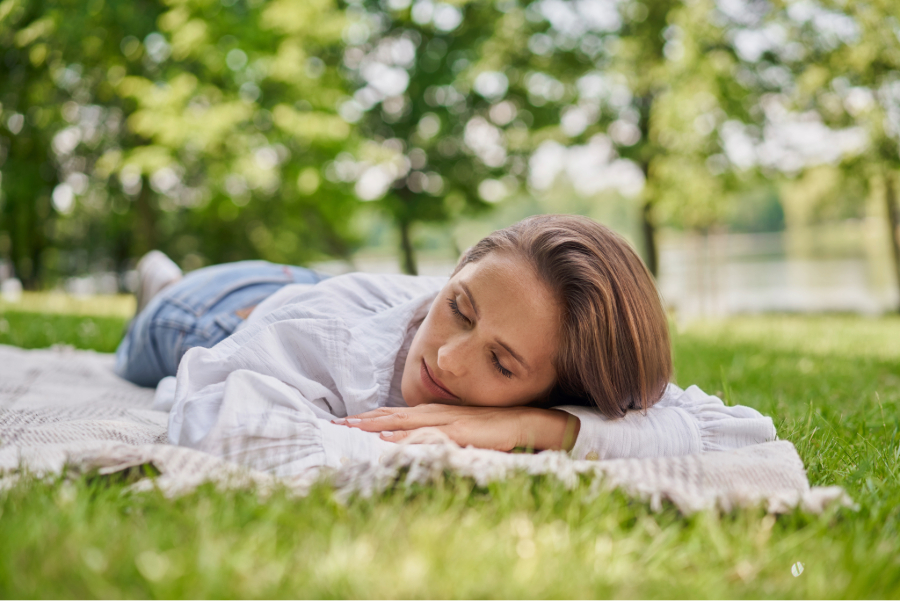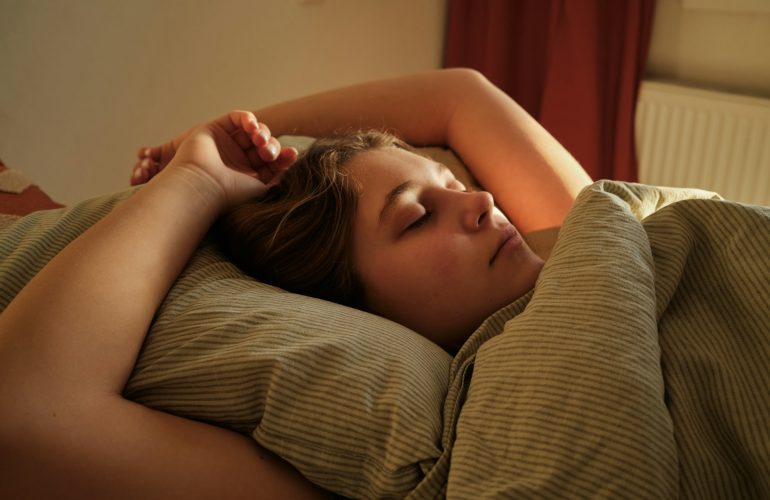As the days get longer and temperatures rise, many people look forward to the vibrancy of summer: vacations, outdoor activities, barbecues, and sunshine. But few realize that to truly make the most of summer—mentally, physically, and emotionally—you need to optimize your sleep.
Seasonal transitions affect your sleep more than you might think. Here at Sweet Sleep Studio we often see patients struggle with changing light patterns, inconsistent routines, and heat-related sleep disturbances during summer months. The good news? With a few proactive steps, you can align your body and mind to thrive in summer with deeply restorative rest.
1. Reset Your Circadian Rhythm with Natural Light
The human body is exquisitely tuned to natural light cues. Longer daylight hours in summer can either energize you—or completely throw off your internal clock if you’re not careful.
Why it matters:
Your circadian rhythm is regulated by exposure to light, particularly in the morning. Light suppresses melatonin (your body’s sleep hormone) and signals your brain to be awake and alert. Conversely, darkness allows melatonin to rise and prepares the body for sleep.
What to do:
- Get at least 15–30 minutes of natural sunlight within an hour of waking. This helps anchor your circadian rhythm and improves sleep onset later at night.
- Avoid bright lights after 8 PM, especially from screens. Use blue-light filters or amber-tinted glasses if needed.
- Keep a consistent wake-up time, even on weekends. Irregular sleep timing can cause “social jet lag” and reduce your energy during the day.
2. Create a Cool, Summer-Friendly Sleep Environment
One of the most common culprits of poor summer sleep is excess heat. The body naturally cools down in preparation for sleep, and if your bedroom is too warm, it can interfere with sleep onset and depth.
Why it matters:
Sleep quality drops when core body temperature stays elevated. Even brief temperature spikes during the night can pull you out of deep sleep and reduce REM sleep.
What to do:
- Keep your bedroom temperature between 60–67°F (15–19°C).
- Use breathable bedding—opt for cotton, linen, or moisture-wicking materials.
- Shower before bed: A lukewarm or slightly warm shower an hour before bedtime helps trigger a cooling rebound effect.
- Consider using a fan or white noise machine to keep air circulating and block out summer night noises.
3. Reassess Your Evening Routine
Summer often brings a more social, spontaneous lifestyle—late dinners, outdoor events, and travel. While enjoyable, these disruptions can wreak havoc on your sleep if left unchecked.
Why it matters:
Irregular routines make it harder for your body to anticipate sleep. Over time, this leads to delayed sleep onset, sleep deprivation, and mood changes.
What to do:
- Anchor your nights with a wind-down ritual. Even if bedtime shifts slightly, engage in a calming routine—reading, stretching, or meditation.
- Dim your lights 1 hour before bed to signal to your body that sleep is approaching.
- Be mindful of alcohol and caffeine, both more commonly consumed in summer. Caffeine can linger in your system for 6–8 hours, while alcohol fragments sleep and suppresses REM.
4. Stay Hydrated, But Time It Right
Hydration is essential in hot weather, but drinking too much water late at night can cause sleep interruptions due to nighttime bathroom trips.
Why it matters:
Frequent awakenings—even for brief moments—can degrade overall sleep quality and prevent you from spending adequate time in deep and REM stages.
What to do:
- Front-load your hydration earlier in the day. Try to taper fluid intake 1–2 hours before bed.
- If you’re sweating more during summer workouts or days in the sun, add electrolytes to avoid dehydration-related fatigue or headaches that disrupt sleep.
5. Align Your Sleep Schedule with Natural Light
While it’s tempting to stay up late during long summer evenings, consider that your body may need earlier bedtimes to avoid a mismatch between internal circadian rhythms and external demands.
Why it matters:
Going to bed late but still waking early for work or activities shortens total sleep duration, leaving you feeling foggy or irritable.
What to do:
- Gradually shift your bedtime earlier by 15–30 minutes every few nights if you’ve been staying up too late.
- Track your energy levels and mood to see how different bedtimes affect you. The optimal schedule is one where you wake naturally and feel alert by mid-morning.
6. Use Summer to Reinforce Sleep-Boosting Habits
Longer days can support positive habits like morning walks, evening bike rides, and outdoor relaxation—all of which support better sleep when practiced consistently.
What to do:
- Exercise earlier in the day, ideally before 6 PM, to help regulate your circadian rhythm.
- Practice mindfulness in nature: Green spaces reduce cortisol levels and can promote more restful sleep.
- Limit late-evening stimulation, including intense workouts, screen time, and high-stress activities.
7. Travel Smart: Beat Summer Jet Lag
Summer often involves travel, which can introduce time zone changes and sleep disruptions.
Why it matters:
Jet lag is a circadian rhythm disorder caused by a mismatch between your internal clock and the local time zone.
What to do:
- Begin shifting your schedule 2–3 days before travel, especially if crossing multiple time zones.
- Upon arrival, get outside in natural sunlight as soon as possible—light exposure is the most powerful way to reset your clock.
- Use melatonin (0.5–3 mg) judiciously for short-term circadian alignment if needed, ideally under physician guidance.
8. Address Hidden Sleep Issues Before They Worsen
Fatigue, irritability, and poor focus in summer are often blamed on heat or travel, but they may reflect underlying sleep disorders such as obstructive sleep apnea or insomnia.
What to do:
- If you wake unrefreshed despite 7–9 hours of sleep, snore loudly, or experience excessive daytime sleepiness, consult a Sleep Specialist.
- Summer is a great time to address these issues before fall and winter stressors (like school schedules or seasonal depression) set in.
Conclusion: Sleep Is Your Summer Superpower
The secret to feeling vibrant, energized, and mentally sharp this summer doesn’t lie in more coffee or energy drinks—it lies in sleep. Prioritizing consistent, high-quality sleep helps your body recover from heat stress, supports immune function, enhances mood, and allows you to truly enjoy everything summer has to offer.
So, before you pack for vacation, plan a beach party, or sign up for early-morning boot camps, take a moment to assess your sleep habits. Prepare your body and mind the right way—by giving them the rest they need.
Are you feeling rested and ready for Summer? If not, we can help, please call Sweet Sleep Studio at (913) 309-5963.




